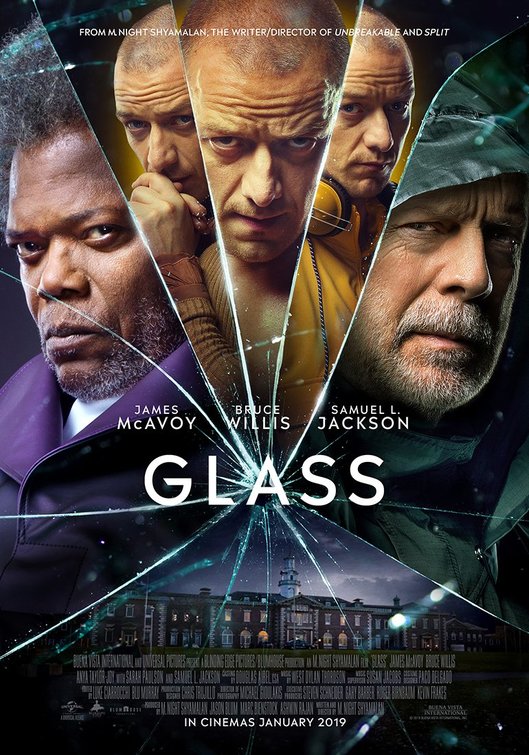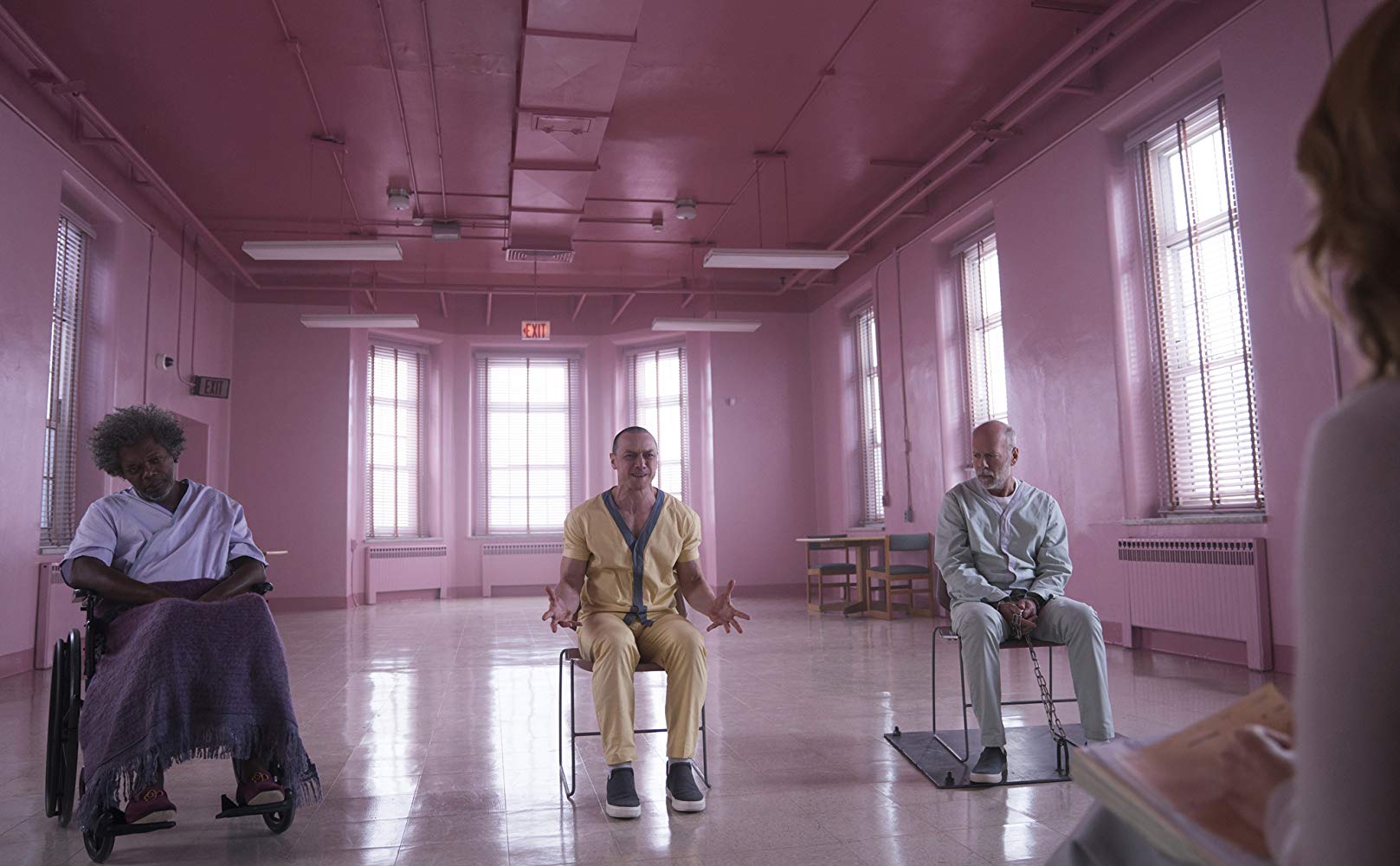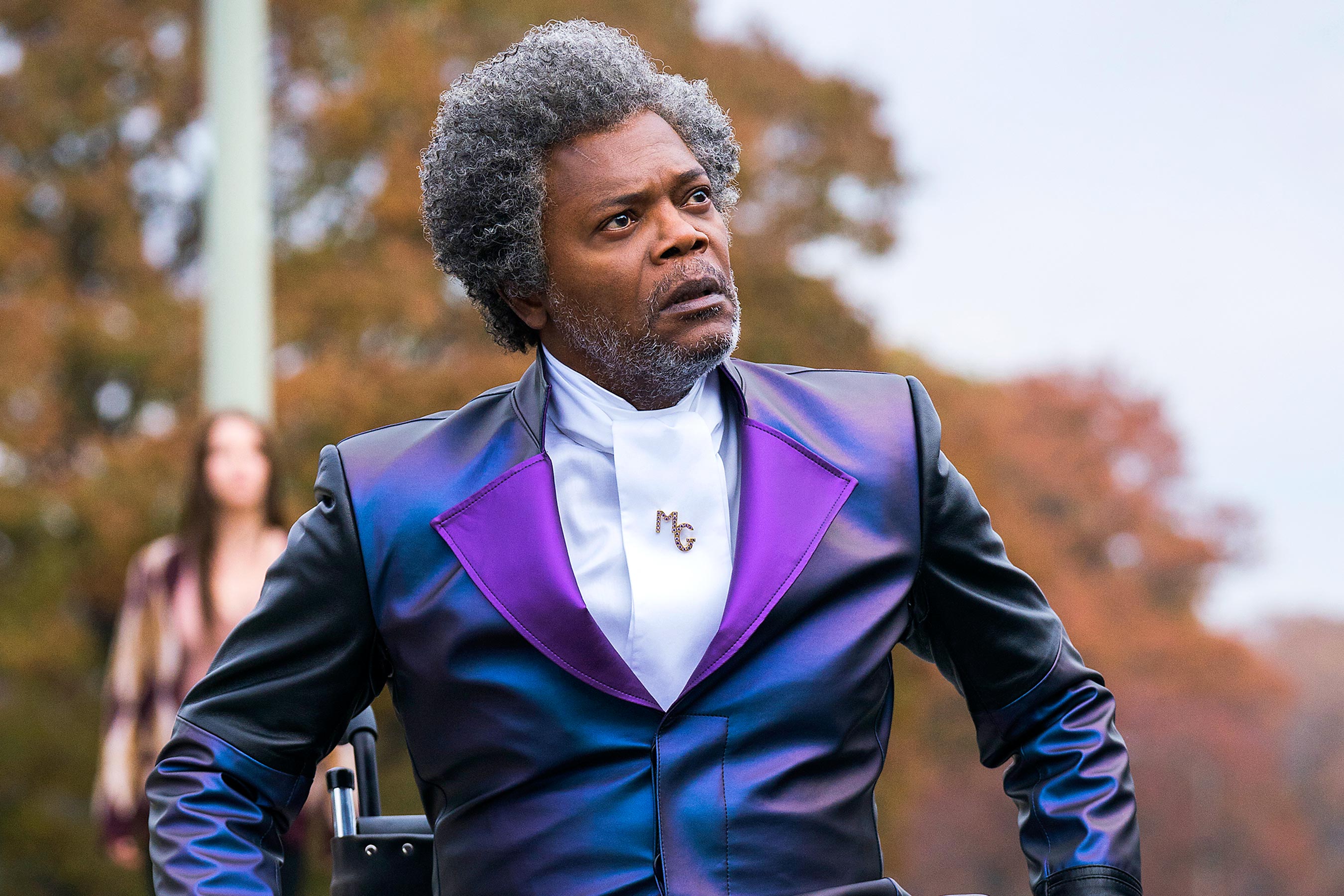by Chris Feil
 M. Night Shyamalan’s Glass is a film that has been a long time coming, clamored for in some circles ever since Unbreakable’s mystery box unleashed a superhero origin story unlike any other. Two years ago, Split arrived after hopes had diminished and reignited interest by announcing itself as belonging to the same story in a quintessentially Shyamalanian twist. Here we come full circle with Bruce Willis’ train crash-surviving vigilante David Dunn and the nemesis that birthed him, Samuel L. Jackson’s Elijah Pierce, AKA Mr. Glass.
M. Night Shyamalan’s Glass is a film that has been a long time coming, clamored for in some circles ever since Unbreakable’s mystery box unleashed a superhero origin story unlike any other. Two years ago, Split arrived after hopes had diminished and reignited interest by announcing itself as belonging to the same story in a quintessentially Shyamalanian twist. Here we come full circle with Bruce Willis’ train crash-surviving vigilante David Dunn and the nemesis that birthed him, Samuel L. Jackson’s Elijah Pierce, AKA Mr. Glass.
Trouble is: Shyamalan is now a vastly different filmmaker today than when this saga began. What was once enigmatic and fuss free about the director’s approach to superheroes has given way to tedium and the mundane. Perhaps the spark is gone because these kinds of stories have gone from a fascination to foundational in the near twenty years since David boarded that fateful train. But no - that pop cultural shift is where Shyamalan fully distracts himself here, spinning the story’s tires into a lot of leaden world-building and thesis-making.

Time has been similarly silly and unkind to our original duo. David now runs a surveillance equipment company with his son Joseph (again played by Spencer Treat Clark), a front for his crimefighting against curbside pranksters. Elijah now resides in a mental institution in near catatonia, but still with fabulous hair and lavender smocks. David is hot on the heels of James McAvoy’s Split-shifter Kevin Wendell Crumb, but is foiled when both are taken into the psychiatric custody of Dr. Ellie Staple, played by Sarah Paulson.
Yes, David is as much a part of her plan as the villains. Hers is a logic straining, ethically dubious examination of a vague condition where subjects believe they are superheroes. In Glass, Shyamalan goes meta - perhaps the very last thing we want him to do. But while Staple spouts the kind of medically unsound psychobabble that encumbered Split and the film stumbles to deliver a mid-budget set piece finale, it becomes all long-winded theorizing without cogent thoughts. Tag on another third act twist to confuse things further and you might mutter a “whoa” if you can stop scratching your head.
Suffice to say, this is not the Unbreakable sequel that that film’s first fans had hoped for. The sickly mania of Split’s shenanigans is more like it and then some, discarding Unbreakable’s slick brooding for something tacky and dull. David does shockingly little, the staging is flimsy, and McAvoy monologues about Drake.
However the film’s superhero is the one that lends the film some visual life: costume designer Paco Delgado, draping our comic book stars in dark jewel tones of amber, eggplant, and sage. The visual clarity he lends the film provides its richest sense of fun and intention. Some of the film’s best bits come from how Delgado reflects their visual identity in the unlikely trio of Joseph and the also returning Anya Taylor-Joy and Charlayne Woodard.

Glass’ most successful stretch is when it belongs to Elijah, with Jackson delightfully relishing his placid confident evil. For a moment, the film is fleet and pristine as it reveals Elijah’s undiminished genius, tricking us into thinking it had been finally Elijah’s movie all along. It’s simple storytelling that’s supremely watchable and without Shyamalan’s now-favored convolutions, Glass’ only sharp edge.
Grade: C-